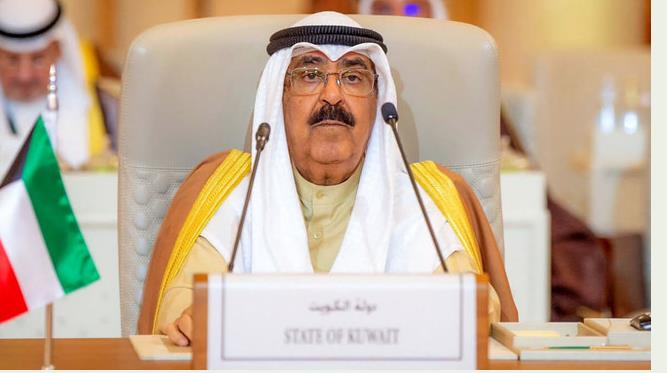
Sudanese Deputy Prime Minister Mubarak al-Mahdi positively reviewed the recent visit paid by President Omar al-Bashir to Russia, telling Asharq Al-Awsat that Bashir’s position on Syria is “rational and practical”.
Commenting on Bashir’s controversial remarks, Mahdi said that the visit was among the efforts exerted by Sudan to rid the country from Islamist ideology.
Bashir had made stark statements on “restoring Sudan’s diplomacy and getting rid of the Islamist ideology and movement”.
“The visit was part of the efforts to reform Sudanese diplomacy and free it from the influence of the ideology, agendas and influence of the Islamic Movement, which has limited the countrys relations with China and Asia,” said Mahdi.
“Because the Islamic Movement has chosen to engage in an ideological confrontation with the West, United States, Russia and Eastern Europe—since Russia agrees with the West in facing religious extremism, this fundamentally contradicted the agenda of the Islamic Movement,” he continued.
Even more, the Sudanese president said he will seek Russian expertise in mining for natural gas, benefiting national economy—Sudan is known to have a rich natural gas reserve.
Additionally, Russians enjoy advanced expertise and techniques in mineral mining, particularly gold.
According to Mahdi, Russian-Sudanese economic exchange covers nearly one million tons of wheat exported to Sudan annually, equivalent to over a third of its 2.7 million tons wheat imports per year.
In his exclusive with Asharq Al-Awsat, Mahdi said Bashirs position on Syria stems from an educated fear caused by the collapse of the state in Libya and the chaos it created.
Therefore, Mahdi remarked that the president continues to insist on the importance of reaching a settlement which preserves the authority of state and is still able to produce change over time.
However, he explained that Bashir’s position will not play out negatively on Khartoum’s alliance with the Saudi-led decisive storm in Yemen.
Riyadh and all Gulf states support the Syria opposition aiming to force the long-term dictator Bashar Assad to step down.
Although less inclined to back a settlement overwhelmingly in the favor of the opposition in Syria, Mahdi said that such a stance will in no way affect Sudan’s support of Arab coalition forces to restore legitimacy in Yemen until a settlement is reached.
Sudan currently is taking part in a military intervention launched by Saudi Arabia in 2015, along with nine African and Middle East countries, to back the internationally-recognized President Abdrabbuh Mansur Hadi after Iran-allied Houthi coupists overran Sana’a. The military intervention’s code-name is “Decisive Storm”.
On another note, Mahdi also pointed out that Sudans interests do not conflict with "normalizing ties with Israel" while supporting Palestinian rights.
When asked about the wave of confusion and concern Bashir’s seeking of Russian protection against the US caused, Mahdi replied it was in order to dull out the threat of the United Nations Security Council’s resolutions.
“Foreign Minister Ibrahim Ghandour explained that Bashir had meant protecting Sudan from the Security Council resolution banning the export of Sudanese gold and other resolutions, some of which are related to Darfur. Russia used the veto to stop it, but China did not use it, but Russia had the courage to use it for our benefit,” Mahdi explained.
“We seek to employ the relationship to create a balance.”
“We can at least limit American pressure, which cannot be confronted without international support—otherwise we will be weak. But with Russia’s support at international forums and the Security Council, American demands will be reasonable and help in accelerating normalization of ties.”
As for Yemen, Mahdi said that international efforts are being “poured” into resolving the ongoing war there.
“There is a British initiative with the participation of Saudi Arabia and the United Arab Emirates to end the conflict in Yemen.”
“The initiative resulted in the reopening of the port of Hodeidah and Sanaa airport for humanitarian supplies, which is part of a global and regional approach to dialogue.”
“War will not end with military victory, but with a political solution which will rebuild the Yemeni state and end the control of the Houthi minority.”
Commenting on the recent division among insurgency ranks, Mahdi said that “shifts enable us to assume that negotiations and initiatives to end the war and reach a political agreement are underway”.
In 2014, Houthi militias backed by Iran joined forces with militarized loyalists of ousted president Ali Abdullah Saleh to overthrow Hadi. However, latest developments saw the withdrawal of Saleh and his allies from the coup.
The former president said he was ready for a “new page” in relations with the Saudi-led coalition.
The call came as his supporters battled Houthi fighters for a fourth day in Sanaa, while both sides traded blame for a widening rift between allies that could affect the course of the war.








